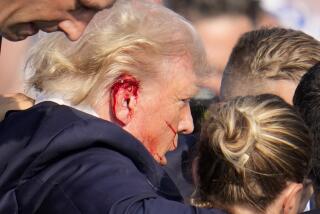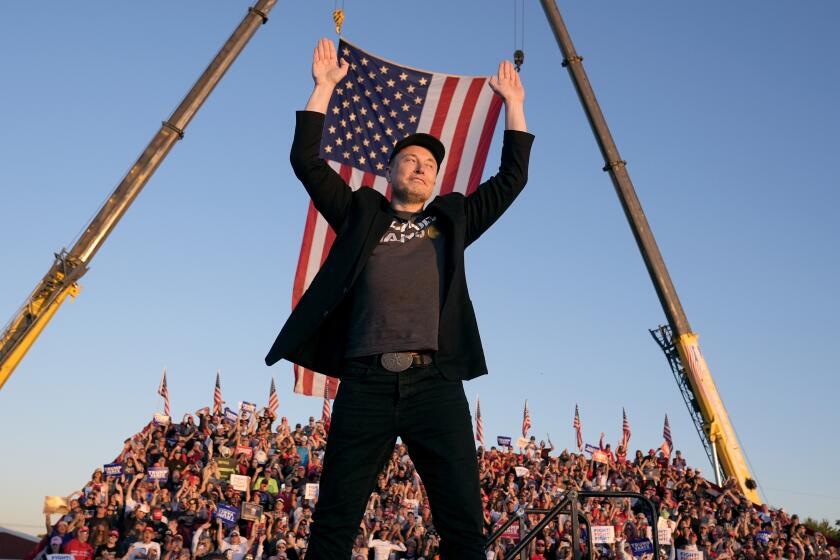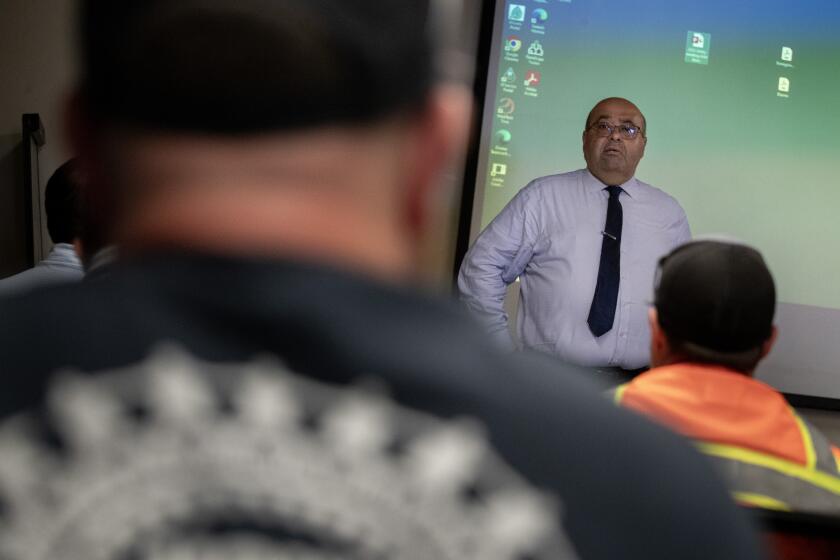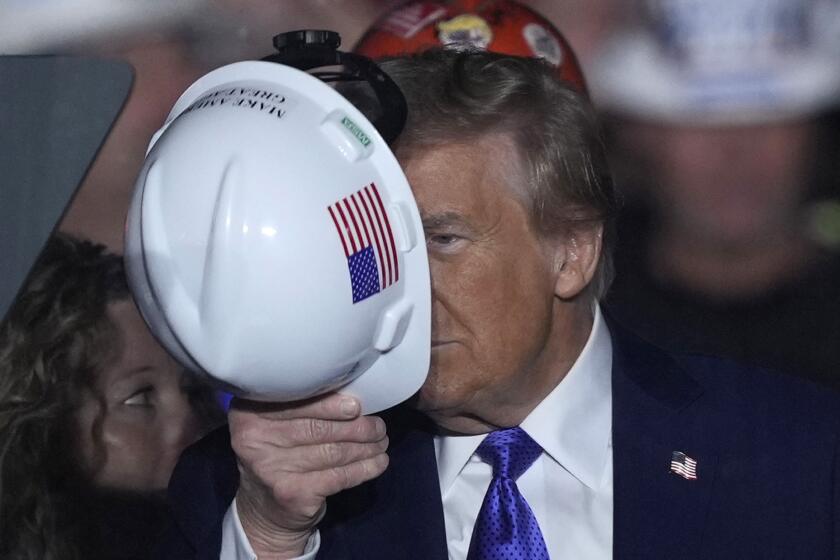Friction Builds Between Freeh, Clinton, Threatening to Burn Them, and the FBI
First the director of the FBI complained publicly that the White House had “victimized” his agency.
Then came a startling leak: that the FBI chief had urged the attorney general to recommend appointment of an independent counsel to investigate Democratic and White House fund-raising.
Not long afterward, House Speaker Newt Gingrich (R-Ga.) charged that the FBI was spending too much time investigating the GOP and ordered committees that oversee the FBI budget to look into the matter.
On Wednesday, FBI Director Louis J. Freeh declared that he is not keeping President Clinton in the dark on important policy information, no matter what the White House might think. “I don’t agree with the contention that national security information was withheld from the president,” Freeh told the Senate Judiciary Committee.
Friction between the FBI and the White House has a long history. But in the last month, the simmering conflict between Freeh and President Clinton has reached an unprecedented level--and the FBI has found itself in the dangerous role of a political football between two warring parties.
Rarely, if ever, has an FBI director so openly challenged the president who appointed him. And it is extraordinary for the FBI to be viewed by the White House as siding with the president’s opposition in Congress.
“What’s going on is clearly damaging to both the president and Louis Freeh,” said a former senior Clinton administration official with inside knowledge of the friction. “It makes Freeh look petty and small, and it makes Clinton look embattled. It hurts the FBI because, institutionally, the bureau should never be a player in a political battle.”
While other FBI directors have had their differences with presidents, they have dealt with them behind closed doors. Even J. Edgar Hoover, who ruled the FBI with an iron hand for 48 years, exercised his power and settled his differences with presidents discreetly.
*
If the friction between the FBI and the White House continues, current and former officials said, the consequences for both men could be considerable.
Clinton, a focus of the Whitewater investigation and the improper campaign donations inquiry, risks creating the impression of attempting to intimidate or divert federal investigators as part of an effort to obstruct justice.
And Freeh could be mauled in the long-running feud between Clinton and his conservative adversaries. A former FBI agent, federal judge and prosecutor, Freeh came to the bureau as a nonpartisan figure with a strong record of battling organized crime. But the issues in the current disputes are bathed in politics.
His agency’s standing--already battered over its troubled crime laboratory and its handling of the 1992 Ruby Ridge, Idaho, standoff with a separatist and the unsolved Olympics bombing--cannot afford more damage. Indeed, congressional Republicans have jumped into the fray, criticizing Freeh’s direction of the FBI and accusing the bureau of being too eager to please the White House.
Late last month, Gingrich charged that the FBI is being too zealous in investigating charges that Rep. Dan Burton (R-Ind.), chairman of the House inquiry into Democratic fund-raising, himself had engaged in improper fund-raising practices.
At a closed-door meeting, according to persons in the room, Gingrich said that he would urge Appropriations Chairman Bob Livingston (R-La.), whose committee controls the purse strings of the Justice Department and FBI, and Judiciary Chairman Henry J. Hyde (R-Ill.), whose panel directly oversees the two agencies, to confront Justice Department officials on the issue.
*
Earlier, Livingston had bluntly told Freeh that his leadership had brought the entire organization into question. Specifically, Republicans accused the bureau of laxness in investigating the White House firing of its travel staff and in giving the White House sensitive FBI personnel files on former officials.
Wednesday, Freeh offered a broad defense of his agency and himself, saying: “We’re an organization of human beings. . . . We make mistakes. Sometimes we make them on a hillside in Idaho. Sometimes you make them in Washington. I make them in my office. We don’t do it--except in very rare cases--with a bad or improper motive. We can do much better and you’ve got my promise to try to keep improving and make our image what I think it should be.”
Freeh and Robert Bucknam, his chief of staff, have worked hard at improving relations with Republican leaders in Congress.
While some view this as necessary to protect the agency’s credibility and bipartisan support, it has stirred suspicions among White House aides. And, inside the bureau, some FBI sources charged that Bucknam, a former Justice Department official in the Reagan and Bush administrations, has been too cozy with Republicans investigating Clinton and the Democrats.
Said a former Clinton administration official: “Freeh is clearly catering to the Republicans because he feels there is a greater threat from them. Clinton can’t afford to fire him but the Republicans can call him up to the Hill and can cut back on his funding.”
Freeh and other FBI officials declined to be interviewed for this article.
Freeh has gone out of his way to demonstrate the FBI’s independence time and again. And nothing has infuriated White House aides more than what they see as leaks from the FBI that have put Clinton in a bad light.
White House officials blame Freeh for disclosure of the fact that he had urged Atty. Gen. Janet Reno to request appointment of an independent counsel in the campaign funds investigation. Reno has refused to do so.
Freeh, questioned by senators Wednesday, denied that he was the source of the leak. “I don’t know where the leak came from,” he said, adding that he hoped it had not come from the FBI.
Earlier this year, Freeh denied a request by White House counsel Charles Ruff for a briefing on the FBI investigation into a suspected Chinese government role in improper campaign donations to the Democratic Party. A leak about the denial implied that the request had been inappropriate, angering Clinton.
Clinton aides charged that Freeh was denying information needed to conduct foreign policy. But Freeh was said to believe that he was being asked to provide confidential information on an ongoing investigation that might affect the White House.
In his testimony Wednesday, Freeh insisted that he had given the White House the essential information it needed, although not the briefing it had requested. The president got “the national security information that he was required to have,” Freeh said.
The dispute over the briefing has been resolved, according to White House officials, with a system that withholds only information that might involve a criminal investigation.
Clinton nominated Freeh on July 20, 1993, for a 10-year term, but the president can fire the director at any time.
However, firing Freeh , while FBI agents are engaged in investigations of the Clintons and other Democratic matters, is hardly a realistic option. There is no way, “obviously,” that Clinton could fire Freeh under present circumstances, a senior White House aide said.
More to Read
Get the L.A. Times Politics newsletter
Deeply reported insights into legislation, politics and policy from Sacramento, Washington and beyond. In your inbox three times per week.
You may occasionally receive promotional content from the Los Angeles Times.











